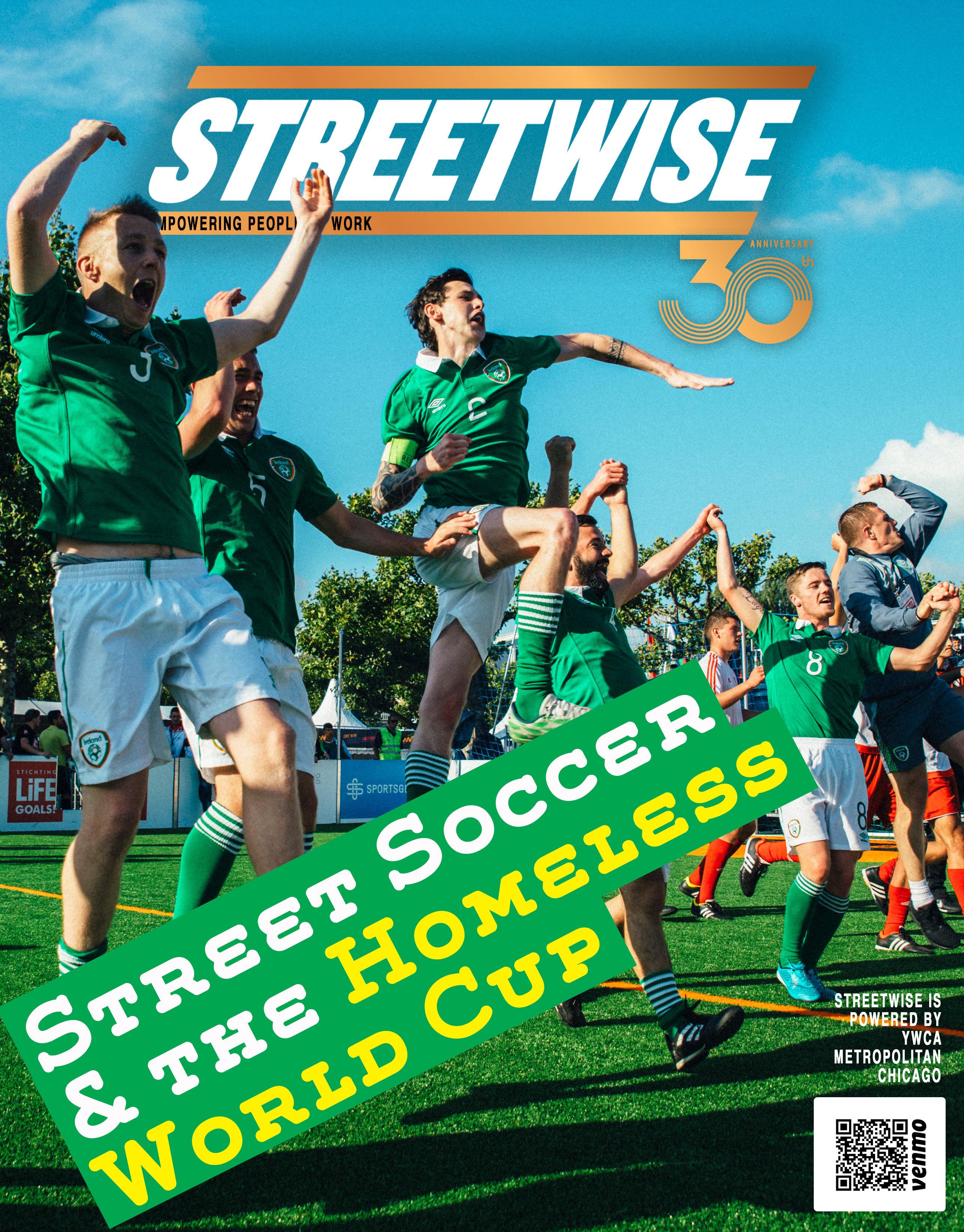
July 12 - 18, 2023 Vol. 31 No. 28 $1.85 + Tips go to your Vendor $3
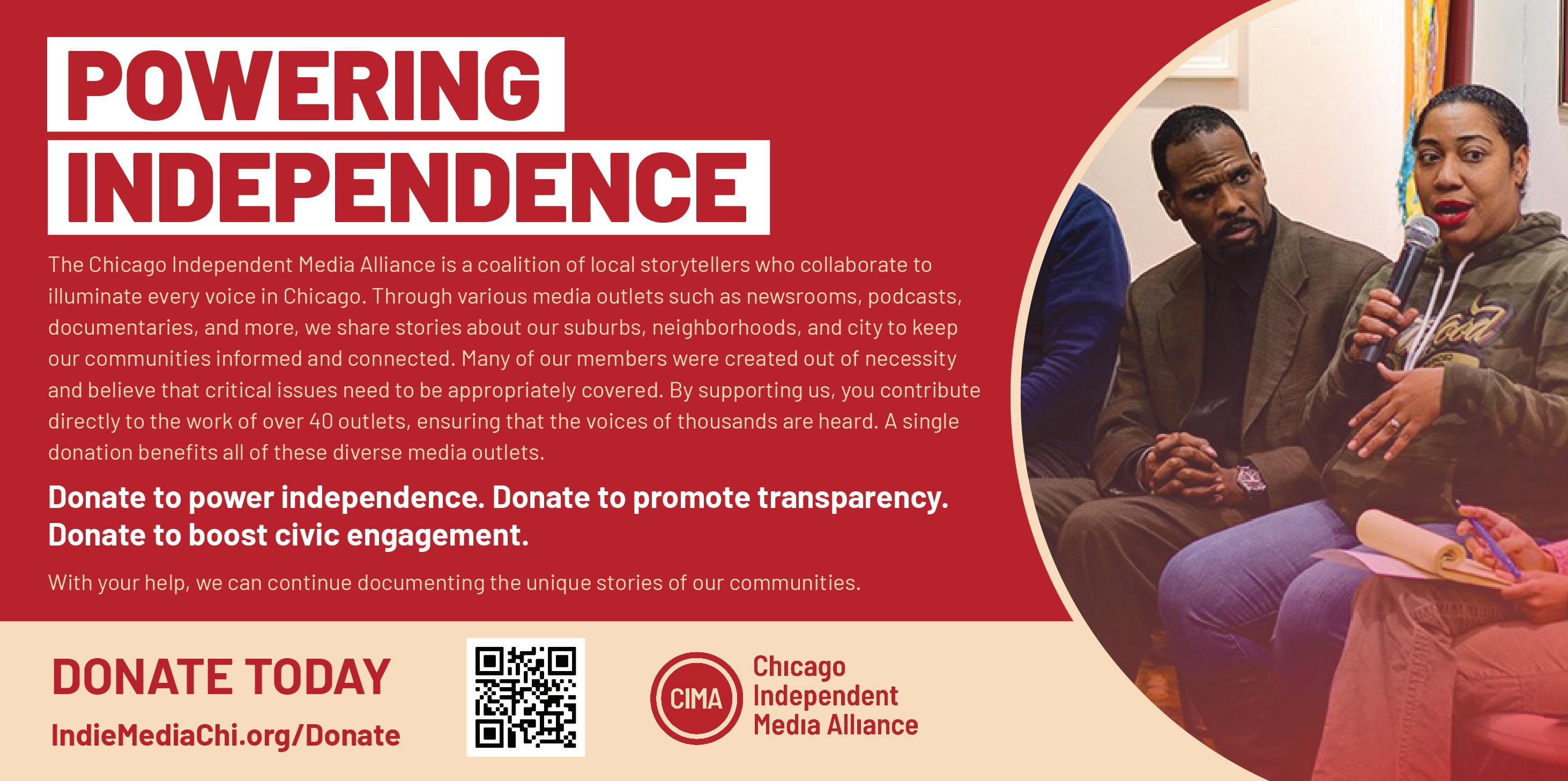

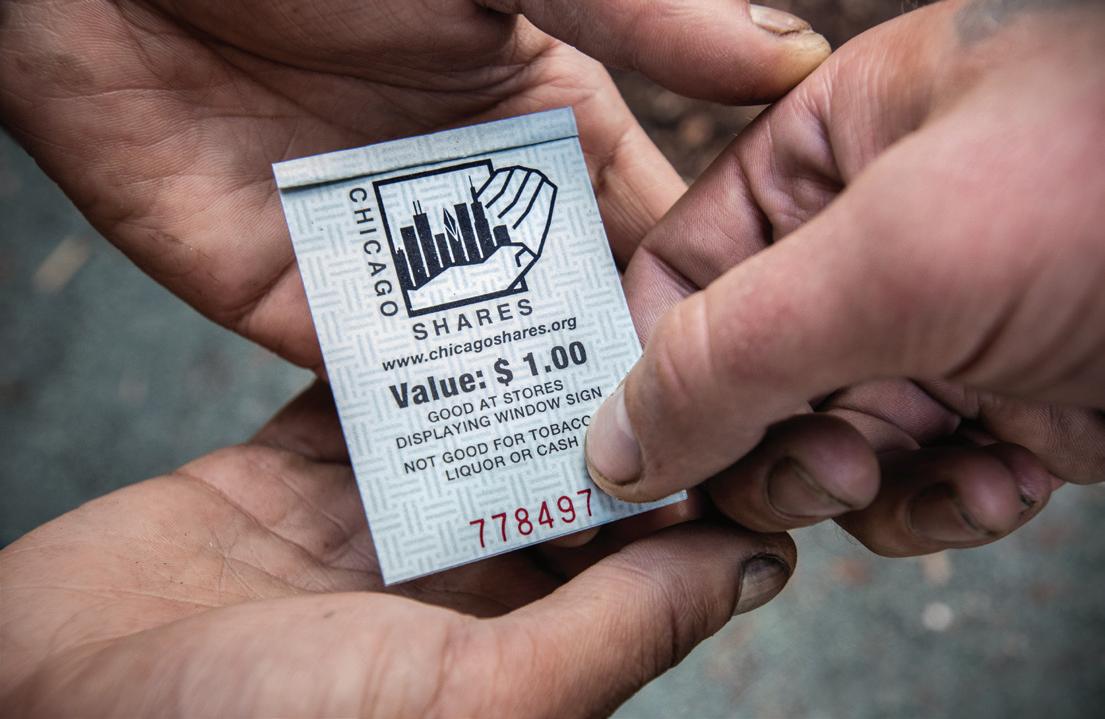
ADVERTISEMENT
4 6 7 8 15
Arts & Entertainment Event highlights of the week!



SportsWise
The SportsWise team attends a White Sox game.
HealthWise
Dr. Marina Claudio of Molina Healthcare goes over the importance of dietary supplements.
Cover Story: street soccer
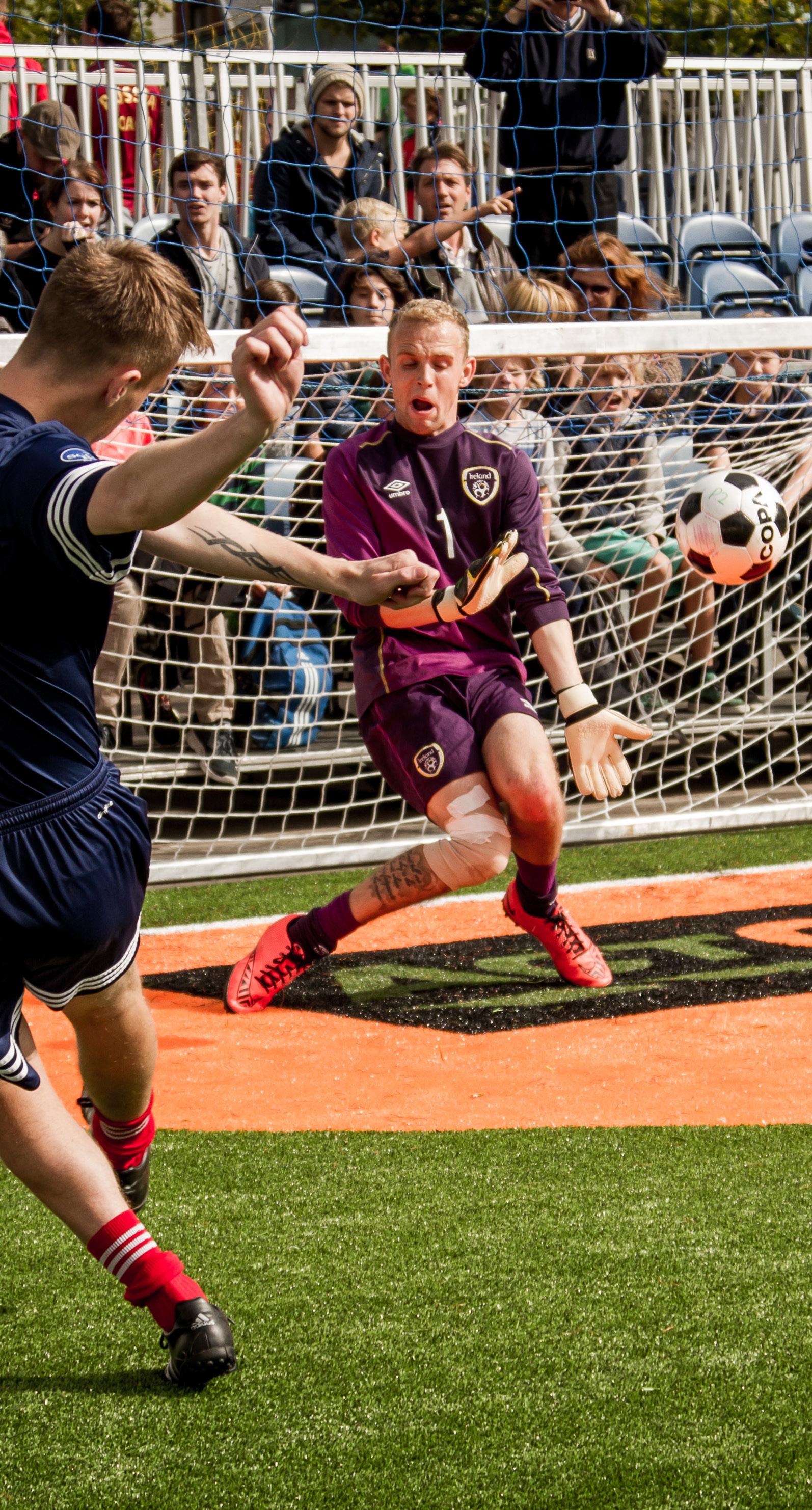
The Homeless World Cup was founded in 2001, after a conference of the International Network of Street Papers (INSP), of which StreetWise is a part. A conference of editors was one thing, but football (soccer) was a universal way to more deeply involve people who are homeless. The Homeless World Cup will be in Sacramento, CA July 8-15 – the first time in the U.S. We also look at programs run in Chicago by Street Soccer USA and how they help homeless youth and refugees.
13
From the Streets

July is Disability Pride Month, marking the anniversary of the signing of the Americans with Disabilities Act, which is civil rights legislation for people with disabilities. StreetWise Intern Kyra Walker describes living with an invisible disability and Vendor A. Allen writes about temporary disabilities that can become permanent when homeless people are discharged from hospitals and back onto the street without housing.

The Playground
60616
To make a donation to StreetWise, visit our website at www.streetwise.org/donate/ or cut out this form and mail it with your donation to StreetWise, Inc., 2009 S. State St., Chicago, IL 60616. We appreciate your support! My donation is for the amount of $________________________________Billing Information: Check #_________________Credit Card Type:______________________Name:_______ We accept: Visa, Mastercard, Discover or American Express Address:_____ Account#:_____________________________________________________City:___________________________________State:_________________Zip:_______________________ Expiration Date:________________________________________________Phone #:_________________________________Email: StreetWiseChicago @StreetWise_CHI LEARN MORE AT streetwise.org Dave Hamilton, Creative Director/Publisher dhamilton@streetwise.org Suzanne Hanney, Editor-In-Chief suzannestreetwise@yahoo.com Amanda Jones, Director of programs ajones@streetwise.org
Youngquist, Executive director jyoungquist@streetwise.org Ph: 773-334-6600 Office: 2009 S. State St., Chicago,
DONATE
Julie
IL,
ON
THE COVER: The 2022 Homeless World Cup (Daniel Lipinski photo). THIS PAGE: The 2022 Homeless World Cup (Anita Milas photo). DISCLAIMER: The views, opinions, positions or strategies expressed by the authors and those providing comments are theirs alone, and do not necessarily reflect the views, opinions, or positions of StreetWise.
ARTS & ENTERTAINMENT RECOMMENDATIONS
 Compiled by Kyra Walker
Compiled by Kyra Walker
Real Lives Retold!
‘Port of Entry’
Port of Entry marks the second collaboration between Albany Park Theater Project (Chicago) and Third Rail Projects (New York). The APTP’s teen ensemble has performed for more than 60,000 people and filmed two of its original broadcasts on WTTW, Chicago’s PBS affiliate. Each performance welcomes 28 audience members into an iconic courtyard apartment building meticulously recreated within a 1929 warehouse. With each step through the 3-story immersive world, participants will experience the joys, struggles, and triumphs of immigrants and refugees from around the globe as they forge new lives alongside one another in one of the country's most diverse immigrant communities: Chicago's Albany Park. Performances will be at APTP on Montrose, 3547 W. Montrose. Children under age 14 will not be admitted. The summer season runs July 15-August 12. The fall season runs October 6-December 12. For more information visit: https://portofentrychicago.com/
The Importance of Home!
Nishanth Injam: 'The Best Possible Experience'

Join author Nishanth Injam in a discussion about his book, “The Best Possible Experience” 6-7 p.m. July 11 at the Seminary Co-op Bookstore, 5751 S. Woodlawn Ave. This book brings us intimate, impeccably realized accounts of individuals living in one of the most populous countries in the world. Injam’s stories question what it means to have a home, to return home, and to show that home is not a place so much as a people who are ready to accept who you are. We see a young man trapped on a bus to visit his parents as his fellow passengers vanish into the restroom. A woman returns to a small village in India every summer to visit the grandfather who raised her, who lives with the ghosts of his son and wife. FREE. Registration is at https://airtable.com/shr3lVkaUNQDj5Cuc
Shop One-of-a-Kind!

The Trashy Summer Market
The trashiest market in Chicago, featuring inspirational Makers creatively transforming reclaimed materials, repurposing less-than-loved stuff and promoting zero-waste activities. Support locally-made, low eco-impact, and socially-thoughtful businesses that make one-of-a-kind items. Find art, home goods, planters and more at KOVAL Tasting Room, 4241 N. Ravenswood Ave., noon-5 p.m. July 15. More information at nowhere-collective.com
Social Justice Film Screening!
'Birthing Justice' Film Screening
'Birthing Justice' captures the experiences and challenges of Black women, their families, caretakers, and advocates. This screening will be 2-5 p.m. July 12 at the Catholic Theological Union, 5416 S. Cornell Ave. It examines the structures and systems that determine disparate rates of mortality. Ultimately, this pivotal film celebrates the efforts to fix America’s broken medical system and transform this narrative of tragedy into hope. Refreshments will be provided. FREE. RSVP on eventbrite.com


ARTS & ENTERTAINMENT
4
The Sounds of the World!
Chicago Immigrant Orchestra
Co-directors Fareed Haque and Wanees Zarour are bringing their musical sounds to Millennium Park, 6:30-7:30 p.m. July 18 at the Pritzker Pavilion, 201 E Randolph St. Fareed is a modern guitarist steeped in classical, jazz, and global traditions. He has collaborated with Goran Ivanovic as part of an acclaimed acoustical guitar duo. Wanees is a composer and multi-instrumentalist with roots deep in Middle Eastern music, and he’s well versed in modern jazz and global music styles. The orchestra is dedicated to the authenticity and history of living musical traditions from around the world. FREE. No registration is required.
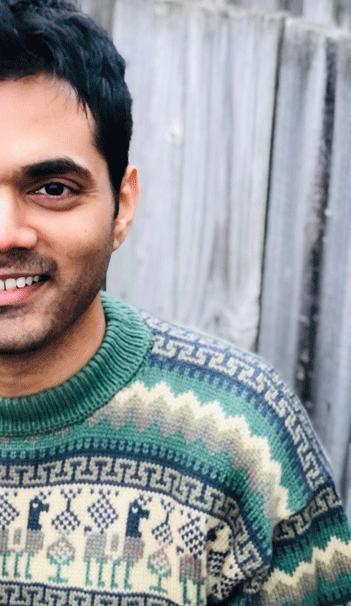
Love, Hope, & Happiness!
Water Lantern Festival

This floating lantern event is about connections. The festival will be 5:30-9:30 p.m. July 15 at Lincoln Park South Lagoon, 2045 N. Lincoln Park. Tickets are $35.99. Use the code “LETSGO” for a $5 discount at www.waterlanternfestival.com/chicago.php. As the sun begins to set, the Water Lantern Festival begins to shine, as attendees light their lanterns and launch them onto the water.
Live in Humboldt Park!
Chicago Latin Jazz Festival at Humboldt Park
Enjoy music from the Tito Carrillo Urbanessence band at 6 p.m. and Marlon Simon & The Nagual at 7:30 p.m. Friday, July 14 at the Chicago Latin Jazz Festival in Humboldt Park, 1440 N. Humboldt Blvd. Raices, a tribute to Ruben Alvarez, will play at 5 p.m. July 15 and De La Buena, a tribute to Cecilio Negron Jr., will play at 6:30 p.m.


A


Summer Nature Fest
Bit of Nature in the City!
Explore the Peggy Notebaert Museum during this celebration of summer. From 3-8 p.m. July 13 at 2430 N. Cannon Drive, enjoy an evening of animals, live music, an appearance by WTTW Kids' Nature Cat, and much more. Soak it all in with good food, drinks and a view of the North Pond under the city skyline. FREE admission, but reserve your tickets at https://naturemuseum.org/programsevents/summer-nature-fest/

Queer Love!
‘Old Enough’ by Haley Jakobson
Haley Jakobson will celebrate the release of her latest novel, “Old Enough,” at Women & Children First Bookstore, 5233 N. Clark St., at 7 p.m. July 11. The story follows Savannah “Sav'' Henry and her exploration of queer love, community, and surviving hardships. Jakobson is a bisexual writer who resides in Brooklyn, New York. Her work explores queerness, mental health and trauma. Check womenandchildrenfirst.com for registration.

Dancing in the Park!
Celebration Dances Of West Africa At Hayes
NAJWA Dance Corps (NDC) and Najwa Junior Corps (NJC) will present a one-hour interactive program on "Dances of West Africa." The program will include dances from the SeneGambia Region, Guinea, and Liberia, along with live drumming. The event is FREE, 6-7 p.m. July 13 at Hayes Park, 2936 W. 85th St.

www.streetwise.org 5
attending a White Sox game
Patrick: StreetWise and, specifically, you SportsWise readers, we got to go to our first live sporting event of the year, and it was amazing.
Russ: And, Pat, you know as well as I do how our last Sox game together went: 6-0 bad guys after one inning—not cool at all.
Patrick: That was horrible. Especially because we were so happy sitting down with our large, packed-with-goodness nachos and beverages.
Russ: Well, at least we ended up scoring a run in the late innings—right?
Patrick: Right. So, White Sox versus the Texas Rangers— June 20—what went down?
Russ: Well, to begin with, there was an unfortunate incident outside of the ballpark before the game began. A car came blasting down the street—with the police in hot pursuit.
Patrick: Sounds like a movie!
Russ: Well, I didn’t see it, but I heard about it from someone who heard about it from someone else. I have since read—that one of the four victims who were injured in this attempted hit & run, was knocked into the air and landed headfirst in the runaway car’s sunroof. Now, that’s scary.
Patrick: That is. I can’t imagine how that must’ve felt. I mean, someone just run me over and, now, I’m upside down in his car, looking at him look at me. And, hopefully, that’s all he’s doing!
Russ: That could’ve ended so much worse with so many people out there.
Patrick: Good point. All right, so despite the rerouting this incident caused on folks getting into the park, we got in—thanks to you and your homeboy letting me butt the Gate-5 line—and it kicked off quick and in a hurry.
Russ: Before we even got to our seats, the Sox scored the first two runs of the game. Then, Texas tied it up in their half of the 5th inning, but, then, the Sox scored two in their half and regained that 2-point lead.
Patrick: Then all hell broke loose: Texas scored four runs in two innings to go back up two.
Russ: Man, straight rollercoaster! Talk about enjoying a game. Well, not quite at that moment, but you get me.
Patrick: (Laughter.) I do.
Russ: Worst thing about that wasn’t that we were losing; it was that the fans seemed out of it. That they gave up.
Patrick: Unfortunately, the thing that gets me about the Sox game is that the fans don’t give enough cheer. Don’t help motivate the team, know what I mean? To cheer as loud when the team is down and need us as when the call is overturned, and we’re in the lead is where it’s at.
Russ: Agreed. But, yeah, to Texas fans: Cry in your beer! Game over: White Sox 7-6.
Game Testimony
Vendor A. Allen

I’m glad I made it. The game was good, intense, and exciting throughout. When the umps overturned that controversial play at the plate, leading to the Sox going ahead, I couldn’t believe it. Once the Rangers went down in the top of the ninth, it was over. I knew I would sleep well that night.
StreetWise Contributor Charles Eberhart
To begin with, I feel major relief that we were able to win the game. It wasn’t looking good, but I—and my StreetWise family—cheered on our White Sox, and they didn’t disappoint. Listen, I know we can’t win 'em all…but it’s nice to be there when they do.

SPORTS WISE
Rashanah Baldwin
Vendor Russell Adams chats with Patrick Edwards about attending a White Sox game.
Necessary Dietary Supplements
Dietary supplements can be taken to improve your health or well-being. Vitamins, minerals, and herbs are all considered supplements. They typically come in pills or capsules. They can also come in powders, drinks, and foods. They are not meant to cure diseases or health conditions, unless the U.S. Food and Drug Administration (FDA) has approved them for a specific health claim.
You can get vitamins and minerals by eating a variety of foods in your daily diet. Vitamins and minerals help nourish your body and keep you healthy. It is important to eat a variety of healthy foods such as fruits, vegetables, lean meats, and fish. If you don’t, your body may not get the proper nutrition it needs and may end up with low levels of nutrients in the blood and tissues. Taking a daily multivitamin can help in this situation. People who may benefit from multivitamins include:
• Women who are pregnant or trying to get pregnant
• Women who are breastfeeding
• Women who have heavy menstrual periods
• Women who have gone through menopause
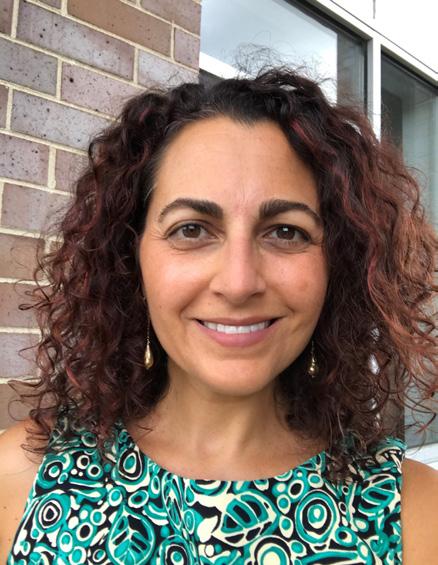
• People who don’t eat animal products (vegetarians and vegans)
• People who have had weight loss surgery
• People who have diseases of the stomach, liver, pancreas, or gallbladder
• People who have conditions that affect their digestive system; this includes: gastrointestinal disease, lactose intolerance, or food allergies
There are hundreds of supplements available. They often make promises to treat a wide range of symptoms and conditions. Be aware that very often, evidence to support these claims is not available.
Talk to your healthcare provider before you begin taking a dietary supplement. Your provider will tell you if it may be helpful or not. Make sure you tell them about anything you already take. This includes all medicines, both prescription and over-the-counter. Some medicines and supplements can react in a bad way. Read the ingredient list on supplements to make sure you know what is in them. Don’t take more than the recommended dosage on the label, unless your doctor says it is okay. A “natural” supplement doesn’t mean it’s safe. In general, they are safe as long as they aren’t used in large amounts. Check the recommended daily dose (RDA) on the label. Taking too much can cause harmful or unpleasant side effects.
Some herbal supplements may not be safe. They could contain unlisted ingredients that can make you sick. Ingredients that aren’t listed on the label can include steroids or estrogens. Products may even contain toxic, or poisonous, substances. Examples include arsenic, mercury, lead, and pesticides. Supplements must be recalled if they are found to contain toxic ingredients.

If you are worried that you are not getting enough vitamins and minerals in your diet, talk to your health care provider to see if you would benefit from dietary supplements. Your provider can recommend a supplement and also advise if it may affect any health conditions you have.
https://familydoctor.org/dietary-supplements-what-you-need-to-know/
7 HEALTH WISE 7
Dr. Marina Claudio is a board-certified family physician who has been in practice since 2003. She is currently a Medical Director at Molina Healthcare of Illinois/Wisconsin. She's a graduate of the University of Illinois College of Medicine at Chicago. She completed her residency in Family Medicine at the UIC/Advocate Illinois Masonic Family Medicine Residency Program.
by Dr. Marina Claudio
The impact of Chicago's Street Soccer USA program
Standing on the Kelly High School football field after a Tuesday night street soccer game, Jarveay Harris can afford to look back. Six years ago, he was living in LaCasa Norte’s Solid Ground supportive housing program for homeless males age 18-21. He had dropped out of Curie Metropolitan, a Chicago public high school, because he felt he didn’t fit in.
Harris’s dad wasn’t around, and he had disagreements with his mom. She wanted him to get a job. But minimum wage was much lower then and, “I could see everyone making more money than me: drug dealers, IT people, startups.”
Then Otto Rodriguez, Chicago director of Street Soccer USA, stopped by and recruited him.
Before long, Harris had gone to street soccer tournaments in Philadelphia, Sacramento and North Carolina.
“That was my first time traveling anywhere,” Harris said. “[Street soccer] helped me see the world outside Chicago. After I got to see the world a bit, I wanted to get out on my own and have been traveling ever since.” In the past three years, he’s been to New York and Miami. Next year, he plans to visit Canada.
Harris worked at Pequod’s while at La Casa Norte and got his GED. He liked school when it was just him and the teacher. It was the big-school environment he hated. Then he went to Robert Morris College for a bachelor’s degree in business. He has his own apartment now, and a job. He does marketing and social media, focused on delivery of products that match messaging, most recently for Pride Month.
“It’s good pay. I like my job. Life’s going on.” He’s OK with the education detour. “Things happen for a reason.”
Harris continues with weekly street soccer, mostly for his health. “Every time, I talk to Otto. My little brother wants to
play soccer and go to school for it. I have known these guys for six, seven years. I want to make sure everyone’s good.”
Street Soccer USA (SSUSA) is an alternative to the pay-to-play model of youth sports for kids age 6-18 living below the poverty line. Its programs are also for homeless families, adults, and people in recovery. Since its founding in 2004, SSUSA has introduced its program to 15,000 youth and adults in 14 cities across the nation. It is also the official partner of the Homeless World Cup, which is celebrating its 20th anniversary this year, and for the first time in the United States. Postponed since 2019 because of COVID, the 2023 Homeless World Cup will be July 8-15 at Hornet Stadium of California State University in Sacramento, which will also accommodate players from visiting nations around the globe.
Like SSUSA founders Lawrence and Rob Cann, Rodriguez played soccer in college, at North Park University in Chicago. He said he knew he wasn’t going to play professionally, but he wanted to continue his soccer journey. He considered a degree in sociology, but instead graduated in finance.

“I convinced myself I could do social work through sport, so I emailed Lawrence and started out as a volunteer.”
From La Casa Norte, he expanded a few other shelters. After five years as a volunteer and 10 as an employee, as well as marriage and two children, Rodriguez is now working with roughly 150 youth, primarily at Casa Central, La Posada Family Shelter and Mercy Home Tuesday through Friday. There are also Wednesday and Sunday night programs in which recent refugees participate
Street soccer’s differences from conventional soccer are what make it so beneficial to the kids it serves. First, street soccer is tighter. Three games play simultaneously Tuesday nights at the Kelly High School soccer field on the Southwest Side.

8
COVER STORY
Story and photos by Suzanne Hanney
Harris on a Tuesday night at Kelly HS.
Second, the game focuses more on collaboration than individual stardom, Rodriguez said.
“You have to play as a team and communicate with each other in order to score goals. There are rarely teams on a pitch that have a LeBron James or a Lionel Messi, because it’s so tight and the formation you make is a triangle. There is no individual talent. It’s all team-based. We teach our participants that. We need each other. We have to work on social skills, how we communicate with people. Do we treat them with respect? If we are mean to them, we won’t get our goals accomplished.”
The SSUSA website lists eight skills developed from street soccer: “show up, play with heart, look up, take the space, build your triangle, praise great play, play the plan, adjust the plan.” The intention is to provide a problem-solving framework that participants can apply to every situation they face in life. The organization’s independent research shows that 92 percent of participants improved in terms of self-efficacy, emotional self-regulation, ability to trust others, social network, and physical health.
Rodriguez said that a lot of his participants continue to play after their competitive days. One of his first graduates was homeless and went through the whole program. Now at 28, he is a teacher in middle school, he has bought his first home and he comes to play on Wednesday nights.
“You see it because it’s a community. They come together when they don’t really have it. Most of these kids are 16, 17, 18. Their attitude is, ‘I don’t know anyone. I hate the world because no one wants to give me anything.’ It’s getting them back into a routine. ‘You do matter, but all of us are working to get to this point.’ That’s what helps Jarveay, a structure, a base. If there is a problem, they can come to me and talk it out. ‘What’s the next step?’”
Another recent benefit from the program is that the Illinois Youth Soccer Association has offered street soccer youths official training for free, so that they can find jobs as referees.


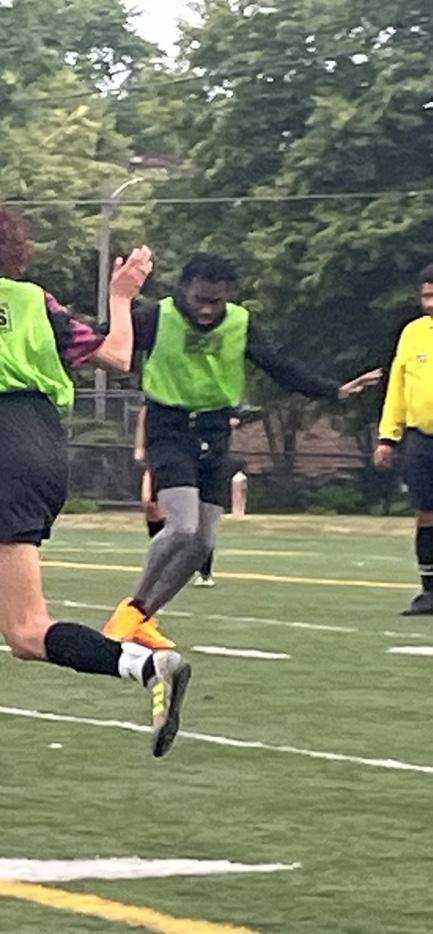
Rodriguez has been to pretty much every Homeless World Cup since 2012. First, there was Mexico City in 2012, then Poznan, Poland, in 2013; Santiago, Chile, in 2014; Amsterdam in 2015; Glasgow, Scotland, in 2016; Oslo in 2017; Mexico City in 2018 and Cardiff, Wales, in 2019. He coached the U.S. men’s team in 2015 and the women’s team in 2012.
They round up playing Mexico, which had 3,000 fans, in the first match, on the Mexico City Zócalo.
The team from across the U.S. had never played together before. “OK, girls, let’s just have fun,’ I told them. We got smoked 23-0. People were laughing, but at the end of the day, we ended up in 8th place. To me, it’s that whole resilience.”
What is the vibe at the Homeless World Cup? And how does it contribute to getting someone out of homelessness and to creating a world without homelessness?
“The vibe is just happiness,” Rodriguez said. He doesn’t bring participants every year, but only when they have “gratitude and growth,” he said.
“We invite our guys who have accomplished the most, who have a certain set of skills that are good enough, but who also have gotten a good job, finished school, or whatever they have to do that has propelled them further in life, so that we can welcome them to this culture event. It’s essentially a free vacation. They play 45 minutes a day and then hang out for a week.”
Just as at Kelly High School, multiple games will be going on simultaneously in Sacramento. There is no admission charge, and spectators can get up close and personal on the field. Sponsorships help pay the way. The Carlos Slim Foundation, from the man whose family owns America Movil, Latin America’s largest mobile telecom supplier, subsidized the World Cup in Mexico City. Michael Sheen, the Welsh actor who plays the angel Aziraphale in the Amazon Prime “Good Omens,” brought it to Cardiff.
www.streetwise.org 9
Free admission is a way to bring more eyes to the games so that people realize, “'Oh, this is the Homeless World Cup, but they look just like me,'” Rodriguez said.
“People think ‘homeless people’ and they think of people sitting under viaducts. Yes, we want to advocate for them, too, but we want people to understand how to advocate for our program, that [they] can teach these kids what they do, show a kid who is struggling with alcoholism that there is a better way.”
After 20 years, the games seem to be achieving the goals sought by Mel Young, a Scottish entrepreneur who co-founded The Big Issue Scotland in 1993 and the International Network of Street Papers (INSP) in 1995. During an INSP conference, he was having a beer with Harald Schmied, who ran a street paper sold by homeless people in Graz, Austria. They were pondering how they could change the world. A conference of editors was nice, but how could they involve more people who had actually been homeless?
Football, they decided, created a universal language. The first Homeless World Cup was 18 months later in Graz, and it has been held yearly since, except for the COVID hiatus.
Young says on homelessworldcup.org that 4 out of 5 participants change their lives forever. They get off drugs and into housing.
Homelessness should not be permitted to exist, Young said. Watching the games also changes attendees’ perspective.
“Don’t think about the huge things you can do,” he said. “If we all do something small, we can change the world.”
How Street Soccer Go Together 2023 Homeless Sacramento
by Tony Inglis
The Homeless World Cup returns July 8-15 for the first time since before COVID – and the first time ever in the United States – in Sacramento, CA. The Homeless World Cup and the International Network of Street Papers (INSP) have a shared history. Both were established by Mel Young, and street papers and soccer projects continue to collaborate. They give a renewed sense of purpose to marginalized people, homeless people and those in poverty.
The INSP celebrates the crossover between street soccer and street papers. Street papers in Argentina, Australia, South Korea, and Switzerland either have street soccer projects, or have the same parent organization. A street paper may be born out of a street soccer team and vice versa.

INSP caught up with the projects to talk about their work and impact.
ARGENTINA
The Argentinian street soccer team started as a sports workshop for vendors of the street paper Hecho en Bs. As. in 2003, before becoming its own NGO, Hecho Club Social, a few years later. Both still work closely together.
“It meant we could share the project with neighborhood [football] clubs, other NGOs, and people in public office working with the Urban League of Football for Social Inclusion,” says project director Sergio J. Rotman.
The project ran a one-day monthly tournament alongside workshops on work, health, housing, citizenship and gender. It branched out to other sports: running and field hockey. It now manages the national LGBT hockey


10
AREGENTINA
Street Papers and Street Together at the Homeless World Cup in Sacramento
team, where 30 trans women have found a space to play and fight for their rights.
One player is Pedro. “He had a child at a young age, so needed to work very hard to support her,” Rotman said. “He used to load and unload trucks, then he dedicated himself to sweeping streets, and later to study to become a physical trainer. He ignored bad influences that might have encouraged him to take easy money, and turned his life around.”
Pedro now helps coach players ahead of the Sacramento tournament. “Pedro is leading a group of great people looking for new opportunities and enjoying playing soccer,” says Rotman. “This is the real spirit of street soccer.”

AUSTRALIA
George Halkias started the Community Street Soccer Program in 2004 “with a couple of soccer balls behind an inner-city Melbourne public housing estate” alongside the then-editor of The Big Issue Australia, Martin Hughes, and some volunteers. Rolled out nationwide to 20 communities in 2007, the project has since worked with more than 10,500 vulnerable people.

“Players come together at weekly training sessions to get fit and make friends, while receiving health education and support,” says Halkias. “Our coaches create a friendly and safe environment for people to connect with their community. For many players, this is a crucial first step to rebuilding their lives. It offers significant purpose in life and a sense of longing.”
Participants have positive feedback on the impact of the team. They cite improved health and fitness, better understanding of access to social services, and alcohol reduction.
Jimmy Maughan is a goalkeeper for the Street Socceroos. “Playing street soccer has really helped me improve my mental health, and [it] boosts my self-confidence.”
SOUTH KOREA
The Big Issue South Korea established a street soccer program in 2010, around the time of the Homeless World Cup in Rio de Janeiro, where six street paper vendors participated.
The aim of the Korean project is to tackle homelessness and housing poverty, and to change perceptions regarding people experiencing these issues.
www.streetwise.org 11
AREGENTINA
Photos courtesy of Hecho en Bs. As. (L) and The Big Issue Australia (R).
AUSTRALIA
“In Korea, the problem of housing poverty is not viewed as a social structural problem, but only as an individual problem,” says Jaehyung Chung, who works within the street soccer project. “Social interest in homelessness is very low. The story of the players who participated in the Homeless World Cup was an opportunity to gather social attention and supporters through the media. There’s positive changes in the lives of players: gaining stable housing, restoring family relationships, going to college, or getting a job. It’s clear that the tenacity gained through the training process, as well as the hospitality and support they experience in the tournament, is positive energy for them.”
The Big Issue Korea had success working with various local welfare facilities and organizations through the project, like conducting a health soccer class program throughout national shelters and other homeless facilities.

Oh Hyun-suk is a Big Issue Korea vendor and a past participant on the soccer team. “Participating in the 2010 Rio de Janeiro Homeless World Cup, I flew for the first time ever,” he says. “I was able to see the world through the Homeless World Cup. I'd given up on a lot of things, but I was able to get a sense of liveliness through positive communication by meeting people like me at the tournament. After the Homeless World Cup, I gained more confidence in selling magazines. I've never had a proper job. I've never been in front of people and hung out with them. I've enjoyed getting close to people through football. It was an opportunity to strengthen the will to move one step at a time in life.”
SWITZERLAND
The Federal Office of Public Health of Switzerland states that "Poverty makes you sick" and "Sickness makes you poor." In 2003, the Swiss street paper Surprise launched the sports program “Strassenfussball” to reintegrate socially disadvantaged and marginalized people “into the playing field of life,” according to the magazine’s Caroline Walpen. “The annual participation of the Surprise National Team in the Homeless World Cup brings a special experience for our street soccer players. Street soccer is preventive, participatory, and supportive on national and international levels.”
For the last two years, Surprise has been promoting women’s street soccer, successfully establishing its own women’s team. A mixed team will travel to Sacramento.

“In Switzerland, there’s hardly any homeless people playing,” says Walpen. “However, we do reach out to other marginalized people. For example, individuals affected by unemployment, addiction problems, poverty, mental illness, refugee experiences, or other adversities. These people are typically socially disadvantaged.”
As with other nations where street papers and street soccer are intertwined (Surprise also has a street choir project), Switzerland has magazine vendors who play football too, like 64-year-old Heini Hassler.
“Ruedi, a friend of mine and fellow street paper vendor, introduced me to the Surprise Street Soccer team a few years ago,” he says. “It’s the challenge that motivates me: no matter how hard it gets, I never give up.”
Courtesy of the International Network of Street Papers
12
SOUTH KOREA SWITZERLAND Photos courtesy of The Big Issue Korea (L) and Surprise (R).
The Americans with Disabilities Act (ADA) was signed into law on July 26, 1990. The ADA is civil rights legislation that prohibits discrimination against individuals with disabilities in all areas of public life: jobs, schools, transportation, public and private places open to the public. Just like African Americans, people with disabilities have the civil right to lives that are as full as their dreams allow.
Chicago’s Disability Pride Parade celebrates 20 years on July 22. The parade steps off at 11 a.m. from 401 S. Plymouth Court. It will continue one-half block west on Van Buren to Dearborn Street, then proceed north to Daley Plaza for postparade activities.
The mission of the Disability Pride Parade is to change the way people think about disabilities. It seeks to break down the internalized shame among people with disabilities. It also promotes the belief in society that disabilities are a natural and beautiful part of human diversity, in which people living with disabilities can take pride.
On these pages, StreetWise Intern Kyra Walker tells about living with an invisible disability, and Vendor A. Allen writes about temporary disabilities among homeless people, which can become permanent if left untreated. -intro by Suzanne Hanney

Disability Pride month in chicago living with an invisible disability
by Kyra Walker
Whether it’s visible or invisible, it’s still a disability. Those who have to bear the weight of it are not superheroes. We are regular people, and we should be treated as such. Not someone you should treat differently because we might require a little more attention, or need different things than those who aren’t disabled. I am a person with a disability.
Crohn’s disease causes inflammation in the gastrointestinal tract, the bowels. What this means is that certain parts of my colon and small intestine are inflamed with the ill ness. As a result, I need to be a bit more cautious about what I eat, monitor my body a little more closely, and make sure I take my medications no matter how much I may dread it. Crohn’s is a chronic condition, which means it can last for several years or a lifetime. Unfortunately for me, mine appears to be lifelong. Crohn’s has no cure, but it can be treated with medication.
I’ve known I’ve had this illness for as long as I can remember. I had to have been either 9 or 10 years old when I got my diagnosis, and it’s been an ongoing battle every day since. Not only because I’m chronically ill, but because this world isn’t 100% ready to make the changes it needs so it can fully serve everyone. Having publicly accessible bathrooms has been my biggest issue thus far.
Crohn’s is associated with Irritable Bowel Syndrome (IBS), which can come with constipation. This is called IBS-C, which is something else that I have. To treat it, every other day I have to take a pill in the morning to help me use the bathroom as often as I should. Linzess isn’t a laxative. What it does is push you to go to
the bathroom. It releases more fluid in your gastrointestinal tract to accelerate bowel movements. It also treats bloating, pain, and discomfort.
I’ve officially lost count on the number of times I’ve been out and about, and I needed to use a restroom, but didn’t have access to one. I will never forget the day when I took my medication prior to leaving my apartment, and I really needed to go. When I started this medication, I was living close to downtown Milwaukee. Here, businesses pick and choose whether or not to have public restrooms. Chances are, most of them don’t. During this incident I was close to the Riverwalk, so there were only a few options: Subway, TJ Maxx, Planet Fitness, or walking down to the 3rd Street Market Hall. This was a day where the bathrooms in TJ Maxx were closed, and apparently Planet Fitness doesn’t have public restrooms. I had no idea that the bathrooms were for members only since I had never been inside a Planet Fitness. Subway doesn’t have public bathrooms either. Even if you try to use the restroom there, it would be locked anyway. I wasn’t too far from the 3rd Street Market Hall, but I had a dire need of a restroom right then and there.
For a person my size and with the amount I eat in a day, the dose is a lot on my body sometimes. There’ve been days where I’d either push my plans for the day or wait until I got home to take the medicine. This is because not every business has a public, functioning restroom. Having public restrooms is such an easy fix, and it’s not going to cost business owners a penny. So that raises the question, why can’t the world be a more accommodating place for those with disabilities?
STREETS
FROM THE
www.streetwise.org 13
The Danger of Temporary disabilities for people facing homelessness
by A. Allen
When I think of a temporary disabililty as it relates to homelessness, someone could have a deep cut on their arm or leg that can lead to a permanent disability. If you are homeless and released from a hospital and your arm or leg becomes infected, you could wind up losing it without proper treatment.
Mental health is another example of a temporary disability becoming permanent. I remember being homeless for three years and I was on the verge of losing my mind. I was unable to think straight and it was getting worse.
To make a long story short, I was finally admitted to a mental health institution: John J. Madden Mental Health Center near Maywood and Hines Veteran Affairs Hospital. Slowly, my mind came back to me. I started feeling better.

After about two months, the officials said, “You seem to be much better. We’re releasing you to go home now.”
I thought, that’s a great idea. “Do you have a place for me to stay?”
“No, we’re releasing you.”
I said, “To go where? I have nowhere to go. I need someplace to go. I don’t want to leave here and continue to be homeless.”
They actually said, “OK, we will find you someplace to go.” I was overjoyed.
The point is, I was on the edge of losing my mind permanently, but because of the intervention of a social worker, I was able to recover without any setbacks.
I know from experience, the condition could have very easily gotten worse. I stayed at a recovery house, the Jack Clark House on the West Side. I stayed there a month. Then they wanted rent. I didn’t have a job.
The social worker again intervened. “Let me pull some strings.”
She did. She got me into the YMCA.
I have recently seen homeless people leave the hospital still homeless, not knowing the resources and programs available to them through social workers at the hospital. Even if a homeless person is in the hospital for only a day, someone should keep track of where they go. Social workers should make connections with them so that they are released into a more stable situation. Otherwise, homelessness could make their condition worsen.
Expansion of “medical respite care” is, in fact, one of four concepts in the new “Home Illinois: Illinois’ Plan to Prevent and End Homelessness.”
The idea is to expand temporary housing paired with clinical care across the state for people who are homeless after being released from in-patient hospital care. Social workers won’t need to go looking for these homeless people, and the homeless people won’t have to worry about having their phones. When social workers find a housing unit, the people will be right there, waiting.
14
the
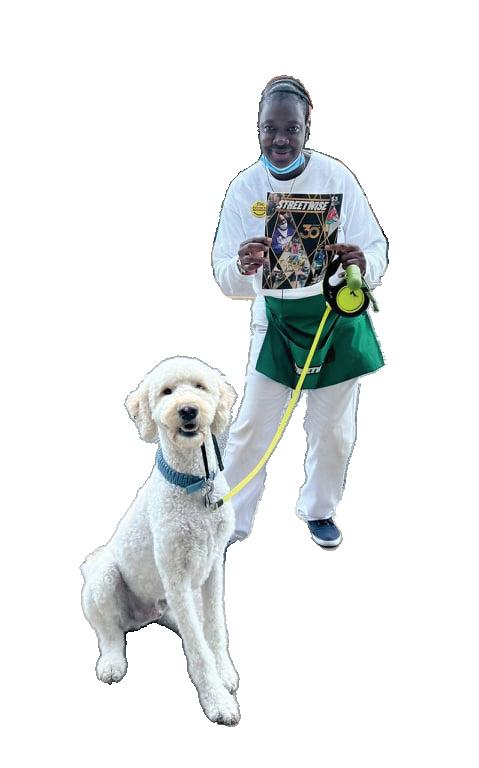


To solve the Sudoku puzzle, each row, column and box must contain the

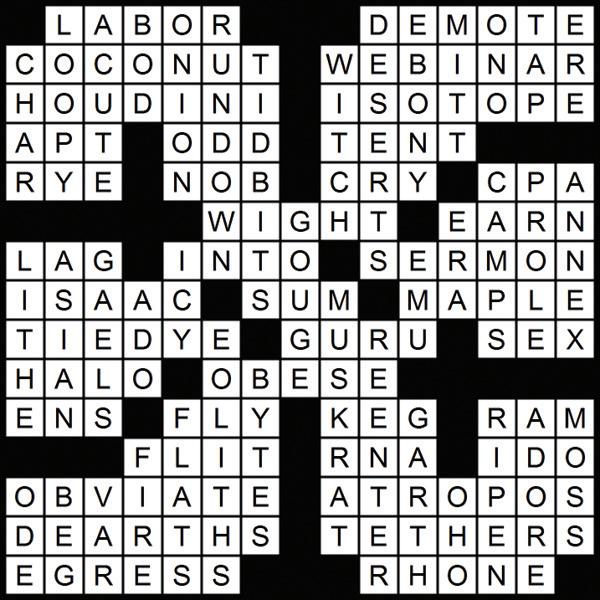





Last week's Answers
How StreetWise Works
StreetWise exists to elevate marginalized voices and provide opportunities for individuals to earn an income and gain employment. Anyone who wants to work has the opportunity to move themselves out of crisis.
StreetWise provides “a hand up, not a handout.”
All vendors go through an orientation focusing on their rights and responsibilities as a StreetWise Magazine Vendor. Authorized vendors have badges with their name, picture and current year.


-or-
Vendors purchase the magazine for $1.15 and sell it for $3 plus tips. The vendor keeps all of their earnings.
Buy the Magazine, Take the Magazine
When you buy the magazine, take the magazine, and read the magazine, you are supporting our microentrepreneurs earning an income with dignity.
New vendor orientation is every Tuesday and Thursday at 10:00 a.m. at 2009 S. State St. Find your nearest vendor at www.streetwise.org
Copyright ©2017 PuzzleJunction.com Streetwise Sudoku PuzzleJunction.com Solution
Copyright ©2023 PuzzleJunction.com Solution the Sudoku puzzle, each row, column and box must contain
1 to 9. ©2023 PuzzleJunction.com Solution 34 Australian runner 36 Botheration 38 Beaver-like aquatic rodent 41 Crude stone artifacts 43 Come in again 47 Memory units 49 Apartments 51 Brooks of country music 52 Turn red, maybe 53 Dig deeply 54 Trunk growth 55 Send packing 58 Jonson work 59 Entreat 60 Dictionary abbr. 62 Cry of surprise 55 Dart 56 Genetic info carrier 57 Promising words 58 Render unnecessary 61 Greek goddess of fate 63 Shortages 64 Ties up 65 Means of escape 66 Geneva’s river Down 1 Eccentric 2 Sharp as a tack 3 Physique, slangily 4 Bagel choice 5 Decrepit 6 Strands 7 Durable wood 8 Baseball glove 9 Plastic ___ Band 10 Kind of dance 11 Bard’s before 12 Burn slightly 13 Choice morsels 14 Warlock 23 Bivouacs 24 Drudge 25 Building addition 27 Overcharge 28 Baseball stat 29 Willowy 30 From the East 31 Highlanders 32 Frigid
Streetwise 6/26/17 Crossword PuzzleJunction.com ©2017 PuzzleJunction.com 38 Arduous journey 40 Ranch newborn 41 Bookstore section 43 Dewy 45 It’s a breeze 46 Grassy plain 47 W.W. II conference site 48 Iowa State’s home 49 Treaty 50 Unpolluted 51 Astringent 52 Encounter Across 1 Neuter 5 Bird of myth 8 Blockhead 12 Flowering shrub 14 Pro ___ 15 Black, to poets 16 True inner self 17 Weaving machine 18 Forte 19 Suds source 20 Track event 22 Hand tool 24 Cookout 26 Invoice amount 27 Ability to hit a target 28 Prayer book 32 Invitation letters 34 Plant life 35 Jeans brand 36 Minute amount 37 Dentist’s advice 38 One way of fitting 39 Wharton degree 40 False move 41 Kind of cook 42 Tool holder, at times 43 Misfortune 44 Met display 53 Fall behind 55 Stake driver 56 Roulette bet 58 Kingdom 60 Neutral color 61 Lawn starter 62 “Fiddler on the Roof” role 63 Plant part 64 Collector’s goal 65 Student aid Down 1 Rebuke 2 Cover girl 3 Excuse 9 Wind instrument 10 Decant 11 Some receivers 13 Kitty pleaser 14 Voting group 21 Canyon feature 23 Bulgarian money 25 Spanish sparkling white wine 26 Rime 28 Towhead 29 Lily family member 30 Cut the crop 31 Thus far Crossword ©PuzzleJunction.com












 Compiled by Kyra Walker
Compiled by Kyra Walker
















































